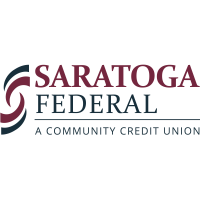Saratoga’s Community Federal Credit Union Expands Reach, Prioritizing Community Over Profit
Saratoga’s Community Federal Credit Union, a local institution with deep roots dating back to 1945, is embarking on an ambitious expansion, extending its services to Fulton, Montgomery, Warren, and Washington counties. This move marks a significant step for the credit union, also known as Saratoga Federal, which has historically served the Saratoga community, starting as an organization for Saratoga teachers.
The credit union’s recent approval to expand its charter reflects a commitment to serving underbanked communities, a core principle emphasized by its governing agency, the NCUA. The decision to extend services northward comes from the organization’s desire to provide essential financial services to areas where traditional banking options may be limited.
According to Don Denofio, Saratoga Federal’s President and CEO for nearly 20 years, “The regulators were saying, get into places where there’s no banking because that’s where we can make a difference as an organization.” This philosophy underscores the credit union’s dedication to serving individuals who may not fit the stringent criteria of traditional banks, particularly those with lower credit scores or limited financial histories.
Unlike banks, credit unions operate on a member-owned model, where customers are shareholders, not just account holders. This structure allows for a more community-focused approach, reinvesting profits into the members through lower fees, competitive loan rates, and higher savings rates. While the gap between credit union and bank offerings has narrowed in recent years, the fundamental difference remains: credit unions prioritize member benefit over maximizing shareholder profits.
Expanding into the four new counties will be facilitated through a network of shared branches and ATMs, partnering with existing credit unions and retail locations like Price Chopper and Stewart’s Shops. This strategy provides members with convenient access to banking services without the immediate need for physical branches. The credit union is also implementing a 24/7 phone and online lending service to enhance accessibility further.
“We’ll have more locations technically than any bank in those counties,” Denofio notes, highlighting the credit union’s commitment to providing comprehensive services to its expanded membership.
The credit union’s approach to lending is also a key differentiator. Recognizing that not everyone has a perfect credit score, they prioritize helping individuals who traditional banks may have turned away. This philosophy aligns with the credit union’s mission to empower individuals and contribute to the economic well-being of the communities it serves.
“We’re willing to give them a chance,” Denofio explains. “My feeling is if you don’t have a credit score, we will guess that you didn’t do anything wrong. Where with the banks, if you don’t have a credit score, ‘Come back when you get one.’”
The expansion goes beyond providing financial services, as Denofio is focused on building relationships and fostering community growth. Rosemarie Smith has been hired as a Business Development Officer to achieve this. She will build relationships within the new counties, attend local meetings, and engage with community organizations like Habitat for Humanity and Chambers of Commerce.
While the credit union plans to establish physical branches in the new counties, the initial focus is to build trust and demonstrate a commitment to the community. This measured approach reflects a long-term vision of sustainable growth and community development.
The credit union’s recent relocation of its main office within Saratoga Springs also underscores its commitment to member accessibility and safety. After 17 years, the credit union moved to a more accessible location with ample parking and enhanced security, addressing member concerns and improving overall service.
As Saratoga Federal expands its reach, it carries with it a legacy of community service and a commitment to empowering individuals and fostering economic growth in the region. Its focus on people, rather than just profits, positions it as a vital resource for the communities it serves.


